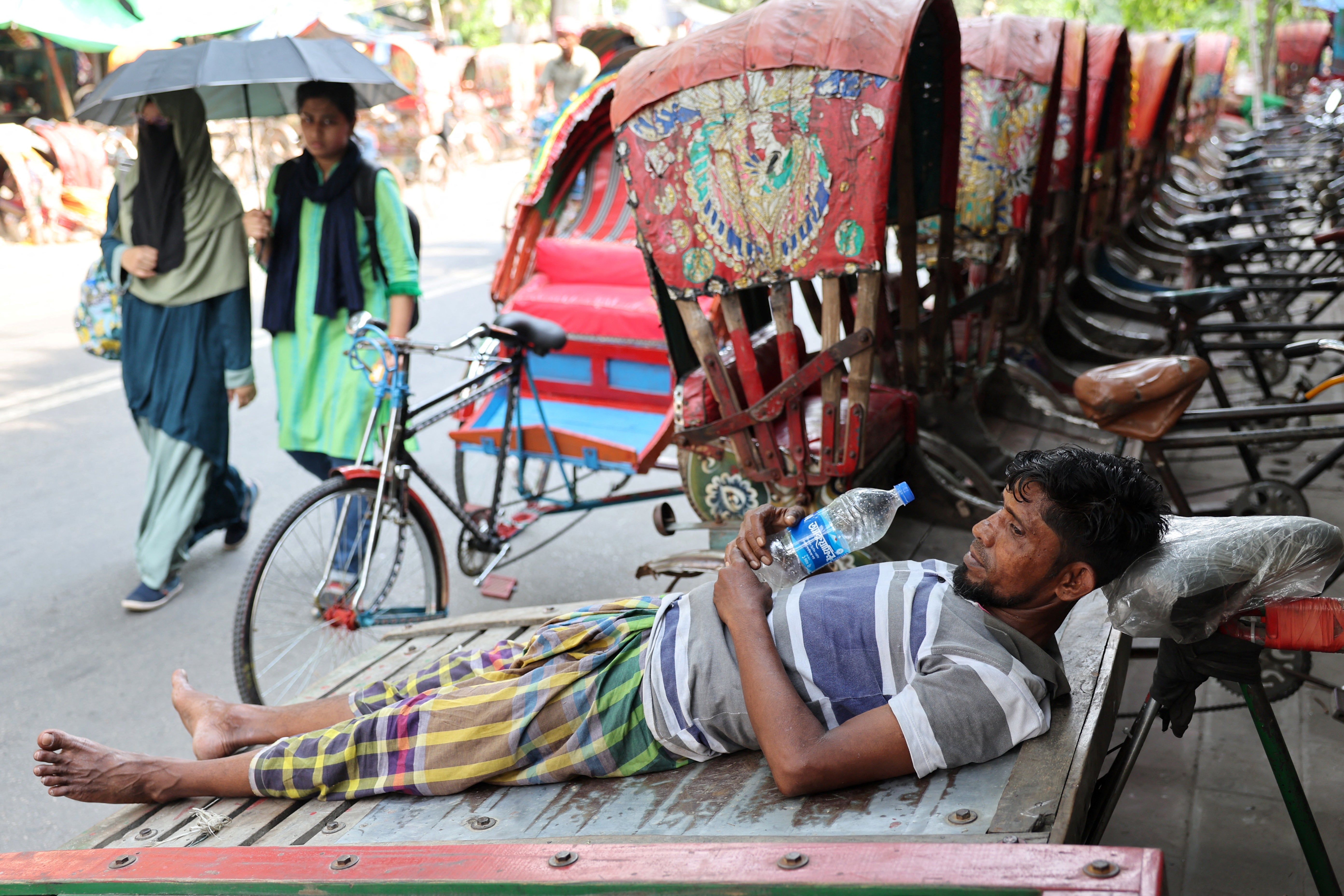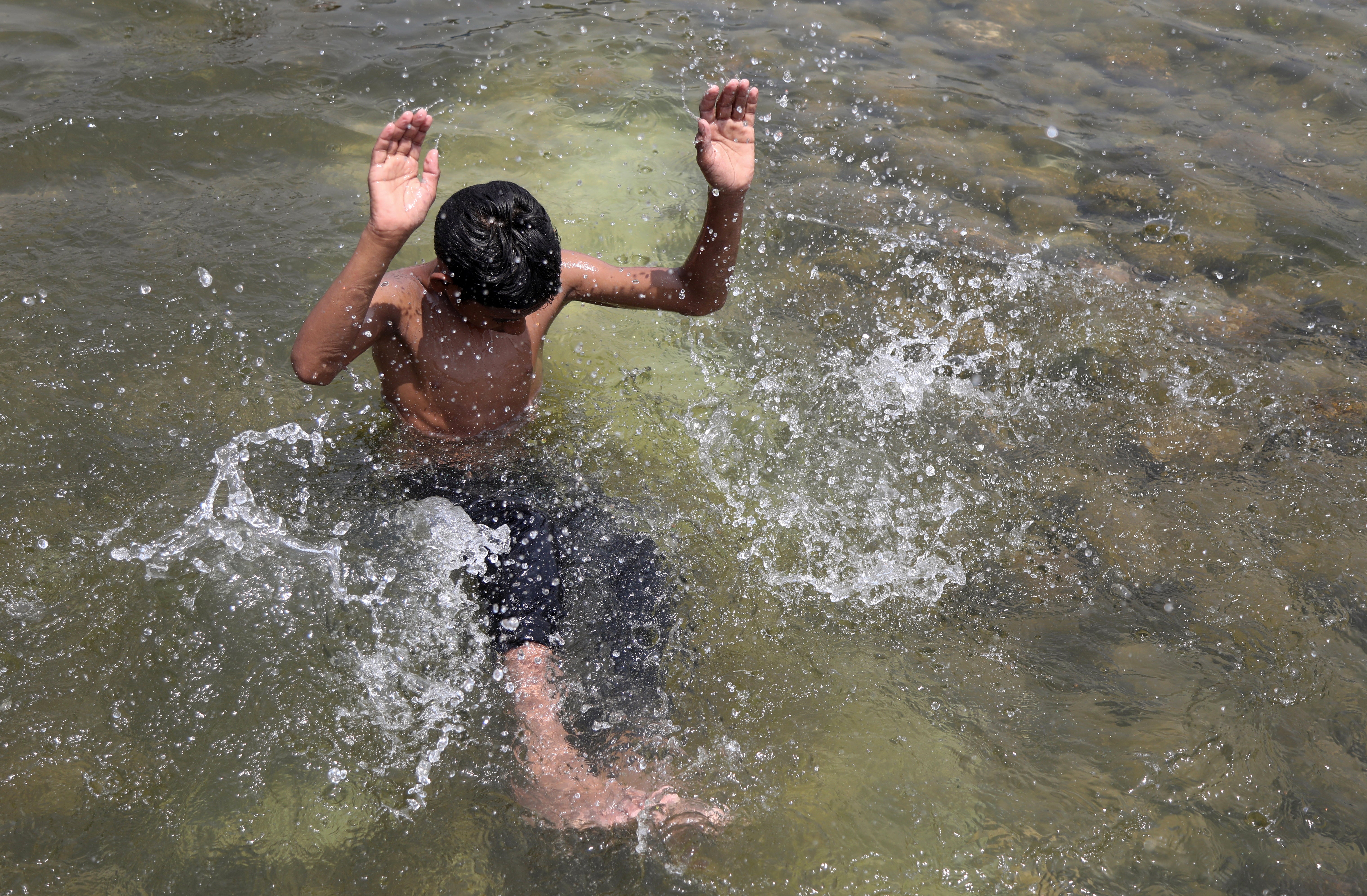Schools shut for 33 million children as intense heatwave sweeps Bangladesh
South Asian country is battling hottest April in three decades
Your support helps us to tell the story
This election is still a dead heat, according to most polls. In a fight with such wafer-thin margins, we need reporters on the ground talking to the people Trump and Harris are courting. Your support allows us to keep sending journalists to the story.
The Independent is trusted by 27 million Americans from across the entire political spectrum every month. Unlike many other quality news outlets, we choose not to lock you out of our reporting and analysis with paywalls. But quality journalism must still be paid for.
Help us keep bring these critical stories to light. Your support makes all the difference.
A punishing heatwave has forced Bangladesh to shut schools for 33 million children as the country battles the hottest April in three decades.
Most educational institutions will remain shut until 27 April, the Ministry of Primary and Mass Education announced last Saturday.
This is the second year in a row that Bangladesh has had to shut schools to protect children from the severe heat.
The early onset of an intense heatwave has also impacted agricultural production in the country as well as in neighbouring India.
Average maximum temperatures in the national capital Dhaka over the past week have been 4-5C higher than the 30-year average for the same period, according to Bangladesh's meteorological department.
The highest temperature this summer was recorded at 42.2C in Chuadanga district over the weekend, while Dhaka sizzled at 40.4C.

At least nine people, including a police officer, have died from suspected heatstroke, prompting health minister Samanta Lal Sen to order hospitals to brace for emergencies.
The met department on Thursday extended the severe heatwave warning until next week. The department’s head, Azizur Rahman, said the heatwave could last until 5 May, but added that temperatures might not soar beyond 42C.
The United Nations children's agency has urged parents to be “extra vigilant in keeping their children hydrated and safe” through the heatwave.
“The severity of this heatwave underscores the urgent need for action to protect children from the worsening impacts of climate change,” Unicef said.
Thousands of Bangladeshis gathered in city mosques and rural fields on Wednesday to pray for rain to bring respite from the sizzling heat.
“Praying for rains is a tradition of our prophet. We repented for our sins and prayed for his blessings for rains,” Muhammad Abu Yusuf, an Islamic cleric who led a morning prayer service for 1,000 people in Dhaka, told AFP.
“Life has become unbearable due to lack of rain. Poor people are suffering immensely.”

Rashed Chowdhury, senior global futures scientist at Julie Ann Wrigley Global Futures Laboratory, said: “The temperature is rising as the El Nino flips to La Nina and it could be the hottest year on record."
Ocean measurements currently show warm surface temperatures in the Pacific but the El Nino is likely to give way soon, he told the Daily Star.
In India, the federal weather agency has issued “severe heatwave” alerts for parts of the country with temperatures soaring to 42-44C.
Mrutyunjay Mohapatra, chief of the India Meteorological Department, said earlier this month that the country was likely to see more heatwave days than normal between April and June, hampering government efforts to bring down food inflation.
The severe weather conditions have forced the eastern state of Bengal to announce an early summer holiday for government schools starting 22 April.
The state’s government has also asked district administrations to arrange drinking water tankers in places facing water scarcity.

Join our commenting forum
Join thought-provoking conversations, follow other Independent readers and see their replies
Comments